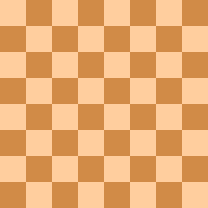
- Chess World Cup
- FIDE Grand Prix
- Olympiad
- World Championship
- List of strong tournaments
- List of world championships

- Checkmate patterns
- Chess openings
- Chess strategy
- Chess tactics
- Chess theory
- Endgames
- Pawn structure
- Problems/Compositions












| a | b | c | d | e | f | g | h | ||
| 8 |

                                |
8 | |||||||
| 7 | 7 | ||||||||
| 6 | 6 | ||||||||
| 5 | 5 | ||||||||
| 4 | 4 | ||||||||
| 3 | 3 | ||||||||
| 2 | 2 | ||||||||
| 1 | 1 | ||||||||
| a | b | c | d | e | f | g | h | ||
Legan chess (or Legan's game) is a chess variant invented by L. Legan in 1913. It differs from standard chess by the starting position as well as by pawn movements.
The initial starting position is shown at the right. The game can be also played with the board rotated by 45° clockwise to make pawn movements easier to understand. There are no castling and no en passant moves. Otherwise, the rules of chess apply.
|
|
||||||||||||||||||||||||||||||||||||||||||||||||||||||||||||||||||||||||||||||||||||||||
Pawns moves one space diagonally forward: white from right to left, black left to right. They capture orthogonally in direction of movements (see the example in the diagram at right). The white pawn on f3 can move to e4 and capture on e3 and f4. Black pawn on b6 can move to c5 and capture on b5 and c6.
Pawns promote on squares occupied in initial position by opponent's king, bishops, knights, and rooks. For example, white pawns promote on squares a5-a8-d8 (marked with white circles); black pawns on e1-h1-h4 (marked with black circles). Note that the pawns that start on d1, h5, a4 and e8 cannot promote without moving toward the center of the board via capturing.